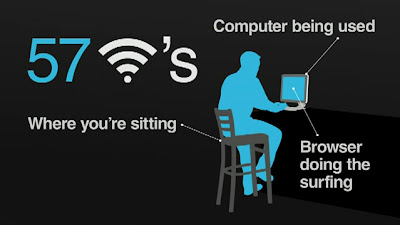Hi everyone! My page-view counter is increasing again, thanks to you loyal readers, whoever you are. (*hint hint* there's a comment bar at the bottom!) And, in celebration, I'm actually going to post on-time for you.
The TEDtalk above is given by Eli Pariser, the ex-Executive Director of MoveOn.org. I feel like I should have blogged about the content of his Talk before because I've been mulling it over my head for a long time.
The observation is that "personal search" is changing the way the internet works.
Those of you who took my Search Engine Optimization (SEO) workshop during Nicole Brown's class last spring know what I'm talking about. But if you aren't aware of it, it just means that Google no longer has standardized search results. It means that if you and I type the same thing into Google's search bar, we won't see the same results page. That this same phenomenon is going on on pretty much every site you visit; most notably, Facebook's News Feed. Read this page if you want a longer explanation.
Essentially, Google rolled out this "personalized search" feature back in 2005, and it's just now gaining speed and popularity because the longer it runs, the more data the algorithms have to draw from. I noticed the change the most when I got my own gmail account a few years ago. I'd log in, check my email, and surf the web. From the second I logged in, google had access to my search history and all my cookies, allowing them to see all the links I clicked on, how long I stayed on the page, etc.
Mr. Eli up there says that there are like 57 signals that Google can use to personalize my search results, even when they're NOT drawing from my account search history or cookies.
Now I tend to see more images at the top of my screen, and almost all of them are exactly what I'm looking for.
So Personalized Search is everything they hoped it would be. It returns relevant results on the first page, and you don't have to go digging to do your research.
**insert elated cheering here**
But a strange phenomenon is happening. Because relevant results appear more often, irrelevant results disappear. It means that if you're a liberal, like Eli, and you tend to click on more liberal links, those conservative links disappear. Now that's a problem for Eli because he has some conservative friends that he actually likes to hear from. It's a problem for me because I don't want to be recycling the same images as another top site (that hurts my SEO ranking, but more on that later).
The biggest problem you should have with this is that when you search for something, you expect to see ALL THE RESULTS, not just the ones that Google's algorithm thinks should be relevant to you. Eric Schmidt puts it well:
"It will be very hard for people to watch or consume something that has not in some sense been tailored for them."
Boo hoo, we're lazy consumers. (it's true.)
Because then we're stuck in this bubble of happiness. Most U.S. citizens enjoy it there. In this filter bubble, we don't realize what we're missing in the world. I didn't realize that there was an explosion at the refinery near my school because I'm habitually more concerned about what the worst paying majors are (yes, English is on that list...but not at the bottom!). And that's because Google, and News Feed and Huff Post didn't give you the option to click on it because they didn't think you'd be interested.
WHO ARE THEY TO TELL YOU WHAT YOU'RE INTERESTED IN?
really.
I think the internet should challenge us. I think we should have challenges thrown at as every day. It keeps things interesting. It gives us an opportunity to learn, and perhaps even change our point of view. It reminds us that we aren't all just information consumers, and sometimes causes us to actually defend our opinions, rather than safeguarding them with close-mindedness and ignorance.
So I second Eli's challenge to Sergey and Larry and Mark. I think they should figure out a search engine that can give us a balance of results, not just the ones that it thinks I'll click on. It's a great strategy for marketing, but not so great for creating a more educated society, or even one that's decent for democracy.
That's why my blog is so varied in nature. That's why I continue these TEDtalk Tuesdays when I my more popular posts come from Florence Fridays or my sister's DIY stuff. I throw in long, pondering essays to challenge you, and myself, to get out of my filter bubble and think about something NEW and DIFFERENT for a change. (the length probably gets to you too, since the internet is changing our attention span as well.)
So, if you got this far, thank you for allowing yourself to be challenged, and I hope you start clicking on random things just to throw off that personalized algorithm you have going. I know that's what I'm going to start doing, at least until Sergey and Larry come up with an algorithm with ethics. =)
Happy TEDtalk Tuesday!

as soon as i finished a commercial popped up where kids say "technology should make you bright and smart".
ReplyDeleteif that's not evidence of big brother, then i don't know what is.